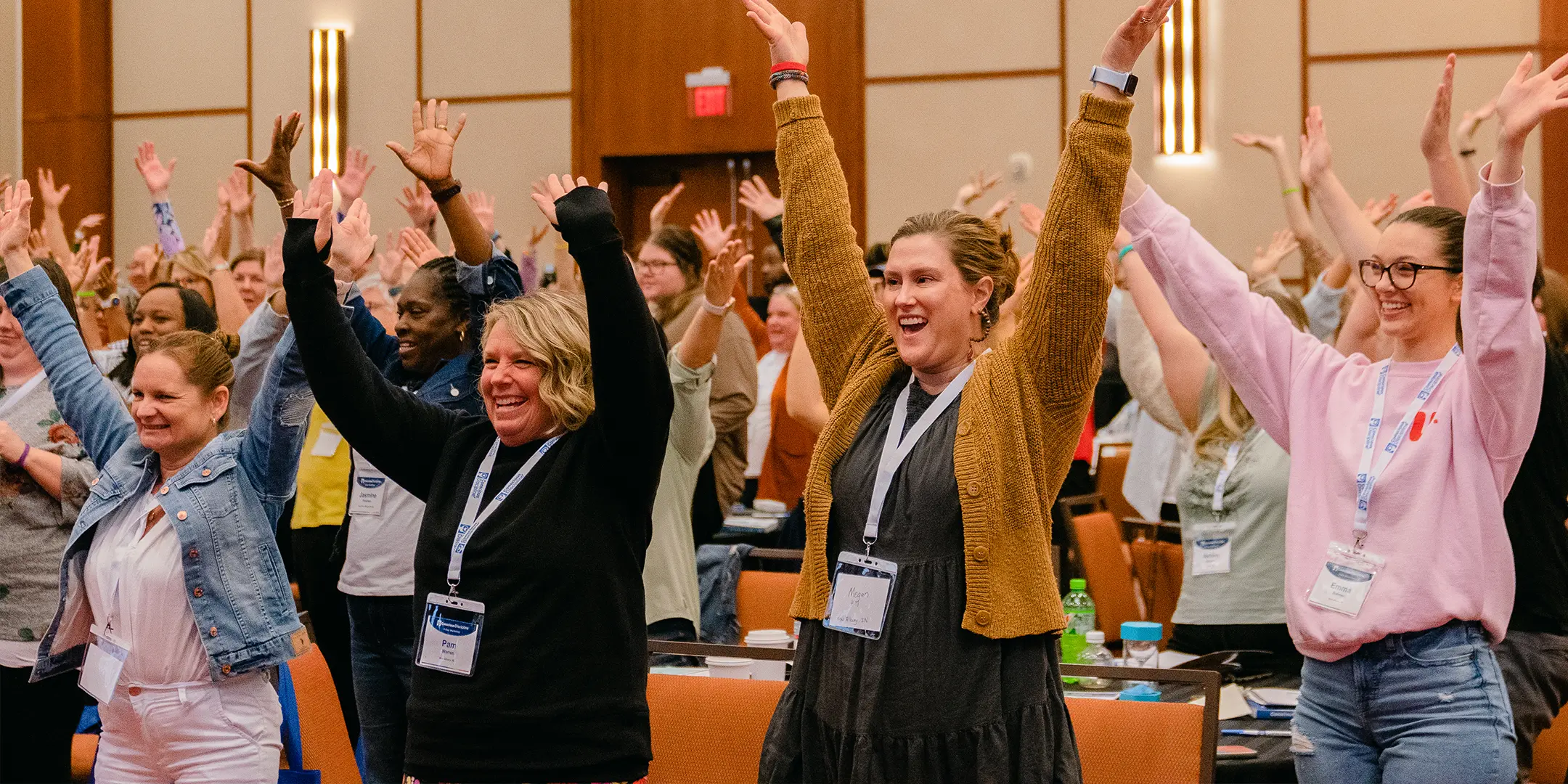We Are Family: The Key to Positive Culture and Climate Shifts in 2024
New years are for new beginnings. Now that we’re back in our routines after the holiday break, it’s the perfect opportunity to re-evaluate approaches, strategies, and practices with fresh eyes. Conscious Discipline supports this reflection and self-evaluation with implementation tools to help identify areas to support. For many, one of the most impactful ways to create change is to refocus on the School Family.
What is the School Family?
Research suggests a sustainable, caring school climate increases academic achievement, mental health, graduation rates, school connectedness, teacher retention and risk prevention (Cohen & Geier, 2010). For those who are new to Conscious Discipline, we provide evidence-based practices for self-regulation, wellness, and positive school culture. The School Family is the soil that allows Conscious Discipline implementation to grow. Building a School Family requires investing in healthy relationships and cultivating a compassionate classroom culture by accepting differences, encouraging unity, and answering the questions, “Am I safe” and “Am I loved?” in the affirmative. By establishing safety and trust, School Families create an optimal learning environment.
Is It Too Late to Start?
January has many of us reflecting on our lives, but instituting change midway through the school year can seem daunting. However, the moment you decide it’s time for a shift in the climate of the school or community is the perfect moment to start. At any time, existing practitioners can declare an OOPS and shift back to the path of implementation, or newcomers can start fresh with Conscious Discipline’s evidence-based, trauma-responsive practices. Identifying whether your current climate within your own classroom or school building is based on control and coercion, or shared power and personal responsibility is an important step. After reflecting on this, begin establishing routines, rituals and learning practices that build authentic connection and leaning into the powers and skills of Conscious Discipline. This can be aided by active calming practices, meaningful rituals and consistent routines that help participants feel safe enough to let their guard down to connect in big and small ways. Self-evaluation can also assist in your growth as a team. Conscious Discipline is a process and a practice, not a destination; choose the elements that are most meaningful for your classroom or school, place your focus there, and then re-evaluate and shift as needed to continue your growth as successes and challenges arise.
Building Connections with Meaningful Rituals and Routines
Connection is foundational to Conscious Discipline and to the success of any group, school, team or organization. We can create powerful connections through activities that involve eye contact, presence, touch, and playfulness. Connections with early childhood and elementary ages can start with a simple greeting ritual in which the teacher or administrator offers each student choices about how they would like to be greeted as they arrive in the morning, and then offering that authentic greeting. For older grades, our Director of Engagement, Diane Phelan connected with students and staff via fist bumps and high-fives. “Connection invites cooperation, increases mental health, and even impacts teacher retention in a positive way,” Diane said. “Establishing connection is everything!”
The compassionate connection and shared responsibility built into the School Family is the bedrock of positive cultural shifts in a school community. Conscious Discipline routines, rituals like the Brain Smart Starts and Wishing Well, and learning structures like the Safe Place and the Kindness Tree create deep inroads toward the felt sense of safety and authentic connections that are the catalysts behind creating an optimal climate for brain development, mental health, resilience, and social-emotional development.
Compassion Over Control and Why the Powers Matter
As you lean into making meaningful connections through rituals and routines to shift the climate and culture, it’s important to remember that creating social trust requires significant upgrades to our own skill set. Traditional systems that operate out of control and behavior management are commonplace, but can be responsible for a negative learning environment and are rarely (if ever) effective for the long-term. To inspire a life of purpose and agency in both staff and students, a shift from external control and behavior management to self-regulation and internal motivation is needed.
In Conscious Discipline, the Seven Powers of Conscious Adults changes our perception of conflict. The corresponding Seven Skills of Discipline change our response to conflict. The School Family provides a safe and connected soil in which staff and students can learn these new Powers and Skills, practice them with each other, and rest in the knowledge that their mistakes will be met with additional opportunities to learn rather than punishment or shame. The School Family, the Powers, and the Skills each build on and strengthen the others.
The Benefits of Change
Still on the fence about whether the halfway point in the school year is the best time to invest your time and energy in building a School Family? An established School Family is shown to:
- Optimize brain development
- Embed resilience into the school culture
- Help heal the cycle leading from loss to violence
- Fosters conflict resolution skills
- Promote the effectiveness of consequences
- Model and teach our highest values
- Model shared power and democracy
- Reignite the inherent joy of teaching and learning
Whether the first half of the year felt like a runaway train or simply fell short of your vision, then the first months of 2024 are the perfect time to get back on course. Unlock the transformative potential of the School Family: New practitioners will start 2024 fresh with a new mindset, new skillset and the power of connection to make it all work, while existing practitioners will be empowered to reflect, redirect their focus and renew their commitment to the specific elements of the School Family needed for growth. Wherever you are in your transformational journey, join us in welcoming the new year with the focus, skills, and actionable steps to create a thriving School Family at our 2-day event February 20-21, in Tallahassee, FL.
Resources:




